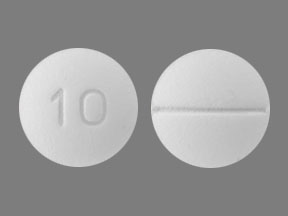
Lexapro Coupons & Savings Card – Discount Prices from $4.00
Brand for: Escitalopram
My prescription
Edit
10MG, Escitalopram (30 Tablets)
Select pharmacy

CVS
$19.17
COUPON PRICE
Walmart
$4.00
COUPON PRICE
Walgreens
$10.33
COUPON PRICE
Albertsons
$12.45
COUPON PRICELexapro savings card
Show this card to your pharmacist
Walmart
$4.00
BIN
ID
PCN
GRP
019876
LHD9247B71
CHIPPO
LHX
Powered by
Related SSRIs prescriptions
More prescriptions for depression
Related SSRIs prescriptions
More prescriptions for depression
Price history for Lexapro (brand) & Escitalopram (generic)
30 Tablets, 10MG
Average retail price for Lexapro
Average retail price for Escitalopram
Average SaveHealth price for Escitalopram
Our price history data is based on aggregated prescription data collected from participating pharmacies in America. Our prescription data updates daily to reflect the latest price changes. If you notice a missing data point, it means there wasn't sufficient data available to generate a monetary value for that date.
Over the last 12 months, the average discount price of Lexapro is $15.96 using the SaveHealth savings card. That's an average savings of 97.04% on Lexapro with our discount card.
*Retail prices are based on pharmacy claims data, and may not be accurate when we don't have enough claims.
Lexapro (Escitalopram) dosage forms
Dosage Quantity Price from Per unit 5MG 30 Tablets $3.89 $0.13 5MG 45 Tablets $4.59 $0.10 5MG 60 Tablets $5.28 $0.09 5MG 90 Tablets $13.18 $0.15 5MG 180 Tablets $22.70 $0.13 10MG 30 Tablets $4.00 $0.13 10MG 45 Tablets $4.75 $0.11 10MG 60 Tablets $5.50 $0.09 10MG 90 Tablets $13.49 $0.15 10MG 135 Tablets $20.73 $0.15
| Dosage | Quantity | Price from | Per unit |
|---|---|---|---|
| 5MG | 30 Tablets | $3.89 | $0.13 |
| 5MG | 45 Tablets | $4.59 | $0.10 |
| 5MG | 60 Tablets | $5.28 | $0.09 |
| 5MG | 90 Tablets | $13.18 | $0.15 |
| 5MG | 180 Tablets | $22.70 | $0.13 |
| 10MG | 30 Tablets | $4.00 | $0.13 |
| 10MG | 45 Tablets | $4.75 | $0.11 |
| 10MG | 60 Tablets | $5.50 | $0.09 |
| 10MG | 90 Tablets | $13.49 | $0.15 |
| 10MG | 135 Tablets | $20.73 | $0.15 |
| 20MG | 30 Tablets | $5.16 | $0.17 |
| 20MG | 45 Tablets | $6.49 | $0.14 |
| 20MG | 60 Tablets | $7.83 | $0.13 |
| 20MG | 90 Tablets | $16.99 | $0.19 |
| 20MG | 135 Tablets | $23.39 | $0.17 |
What does Lexapro do to a person?
Lexapro, also known as escitalopram, is a selective serotonin reuptake inhibitor (SSRI) used to treat depression and generalized anxiety disorder. It works by increasing the levels of serotonin, a neurotransmitter in the brain, which can help improve mood, reduce anxiety, and enhance overall emotional well-being.
Is Lexapro just like Xanax?
Lexapro and Xanax are not the same. Lexapro (escitalopram) is an antidepressant in the selective serotonin reuptake inhibitor (SSRI) class, primarily used to treat depression and generalized anxiety disorder. Xanax (alprazolam), on the other hand, is a benzodiazepine used for the short-term management of anxiety and panic disorders. They work differently in the brain and are used for different purposes.
Will I gain weight on Lexapro?
Weight gain can be a potential side effect of taking Lexapro (escitalopram). However, not everyone will experience this side effect, and the extent of weight gain can vary among individuals. It is important to monitor any changes in weight and discuss them with a healthcare provider, who can provide guidance and consider alternative treatments if necessary.
What is the biggest side effect of Lexapro?
The most common side effect of Lexapro (escitalopram) is nausea. However, individuals may experience other side effects such as insomnia, fatigue, dry mouth, increased sweating, or dizziness. It's important for patients to discuss any side effects with their healthcare provider.
What is the alternative to Lexapro without weight gain?
An alternative to Lexapro (escitalopram) that may have a lower risk of weight gain is Wellbutrin (bupropion). Bupropion is an atypical antidepressant that is often associated with weight neutrality or even weight loss in some patients. However, it's important for individuals to consult with their healthcare provider to determine the most appropriate medication based on their specific needs and medical history.
